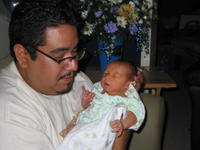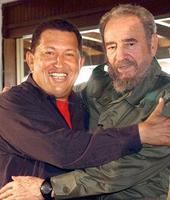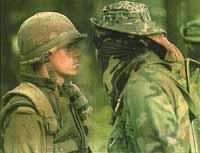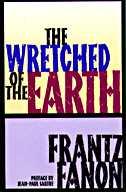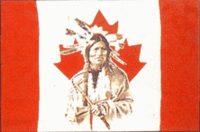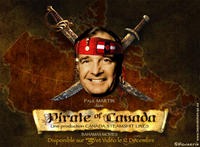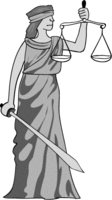
In 2001 Supreme Court Justice Binnie in Mitchell v. M.N.R. stated, “Grand Chief Michael Mitchell also known as Kanentakeron…is also part of modern Canada who watches television from time to time and went to high school in Cornwall. As much as anyone else in this country, he is a part of our collective sovereignty.” Mitchell lost his case which argued that he had an Aboriginal right to trade across the border duty-free. There are other notable “losses” such NTC Smokehouse, Van der Peet, Cheslatta Carrier Nation and others, but I contend that all the Aboriginal rights cases that have been brought before Canadian courts have been losses for Indigenous rights.
For a long time Indigenous people were prohibited from bringing rights cases before the courts. In 1973 Calder marked the entrance of Indigenous peoples into the previously exclusive litigation club as Karilyn Toovey points out in her MA thesis in Indigenous Governance: “Decolonizing or Recolonizing: Indigenous Peoples and the Law in Canada.” Toovey presents a thoroughly researched and well documented case against legal cases as a means to achieve any form of restitution let alone reconciliation for Indigenous people in Canada.
This week, the Supreme Court of Canada ruled against several Mi’kmaq loggers in two separate cases in a decision praised by non-Indigenous logging companies, government officials and our Métis friend at the Canadian Tax Payers Federation. Aboriginal leaders across the country have been quick to dismiss the ruling as having little to no impact on their legal aspirations. I have not heard the latest from Guujaaw, president of the Council of the Haida Nation on this issue but I do remember him saying once upon a time, “when one tribe wins a case, it only applies to that one tribe, but when one tribe loses a case it applies to everybody.”
I believe there can be no justice for Indigenous people in the colonial courts. I do not believe this because of the recent “losses” or any other loss. I believe that the whole process of appealing to the Canadian Courts is replete with inherent flaws, the first of which is the fact that they have no legitimate jurisdiction over our sovereign Indigenous rights. Prolonged attempts to gather just the right evidence, with just the right group of highly-paid lawyers in front of the right sympathetic judge create a false sense of hope and merely add legitimacy to an otherwise corrupt system.
Perhaps we can best understand and illustrate the profound absurdity of these flaws by actually examining the political “gains” and “winning” cases. In her paper, Toovey states,
“In 1982, section 35 was added to the newly patriated Constitution of Canada. For many this signalled the beginning of a new relationship (sound familiar?) between the government and Indigenous people. Section 35 essentially ushered in a new rights focused discourse in Canada, and paved the way for a new era of lawyers bent on emancipating Indigenous peoples.”
Many Aboriginal leaders fought for the inclusion of section 35 however the landscape changed such that Indigenous people had “to take any and all claims to court, further legitimizing the institutions of the Canadian state, and removing Indigenous issues from the political sphere,” states Toovey. Not to mention the millions upon millions of dollars paid to mostly non-Indigenous lawyers, while our people remain in abysmal living conditions.
Now let us address the “wins.” R. v. Sparrow is hailed by leaders and lawyers far and wide as a victory. It basically confirmed that Indigenous people had the right to fish for food. We needed a bunch of stuffy neo-colonials in wigs and robes to tell us that? The ruling stated that the government could infringe upon that right, as long as it did so justifiably.
Patricia Monture-Angus points out another problem, “In Sparrow, the delineation of rights is consistently narrowed in such a fashion that valuable Aboriginal time and energy must be repeatedly expended to secure narrow victory upon victory with the great consequence of failure looming around every judicial corner.” Essentially it set out the requirement that Indigenous people would be required to legally fight, right-by-right, case-by-case.
While not a victory, R. v. Van der Peet added to the increasingly narrow legal landscape. Toovey points out that, “The court in Van der Peet determined that it is not only appropriate, but also necessary for the judiciary to determine what is authentically Indigenous and that this can be done through a series of tests…” The increasing number of firms practicing Aboriginal Law exclusively is evidence of the growing complexity and number of hoops that Indigenous people continue to subject themselves to.
R. v. Gladstone, another victory, confirmed the Heiltsuk right to sell herring spawn, or in the view of the court, granted the commercial sale of herring spawn in so far as earning a “moderate livelihood.” It is worth mentioning R. v. Marshall here, which stated that while they may also earn a “moderate livelihood” the Mi’kmaq were prevented from an “open-ended accumulation of wealth.” The courts confirmed the government’s right to regulate and curtail the rights of the Heiltsuk and the Mi’kmaq. In fact, the public outcry was so strong after the first Marshall ruling, not to mention the $30 million DFO and the RCMP spent battling the community of Esgenoopetitj, the Supreme Court issued Marshall 2 further enhancing the government’s regulatory powers.
Are you feeling righteously indignant yet? Are you itching to go fishing? It gets better. The big daddy of them all has to be Delgamuukw v. British Columbia. At the trial level, the Gitksan and Wet’suwet’en spent almost two years, 374 days and millions of dollars in court. The sheer size and scope of the case had pundits and legal scholars holding their collective breath in anticipation of the appeal ruling from the Supreme Court of Canada. Crown sovereignty was asserted stronger than ever referring to Aboriginal Title as merely a “burden on the Crown.”
Justice Lamer stated, “In my opinion, the development of agriculture, forestry, mining and hydroelectric power, the general economic development of the interior of British Columbia, protection of the environment or endangered species, the building of infrastructure and the settlement of foreign populations to support those aims, are the kinds of objectives that are consistent with this purpose and, in principle, can justify the infringement of aboriginal title.” Excuse me? What’s the point? How then after something so fully demeaning and exemplary of the colonial’s attitude were we ever duped into thinking this was a good thing? The depth of our masochistic desires seems, as yet, to know no bounds.
Still, lawyers like Louise Mandell, QC, speak of “planning for the big win,” that ever elusive pie in the sky that is just around the next corner. Well, I haven’t even really talked about the “losses.” The Canadian Courts have failed to act with any modicum of decency that would suggest they are prepared or even able to deal with Indigenous people justly. Every year that passes grants the governments and their courts greater legitimacy. Every case we bring before them puffs up their neo-colonial chests and still our rights are denied, our people suffer, our territories are depleted and the lawyers cry all the way to the bank. When will we get off our knees, brush off the dust and take back our sacred rights and responsibilities?
[Special thanks to IGOV graduate, Karilyn Toovey for an MA thesis, “Decolonizing or Recolonizing: Indigenous Peoples and the Law in Canada” that was enlightening and inspirational. You can download it in .pdf format
here.]
